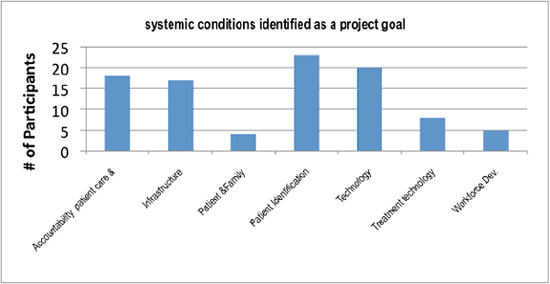NIATx Accelerating Reform Initiative (ARI)
Preparing for Reform
NIATx has identified seven areas where organizations will need to change to adapt to a new care delivery model, described in the table below. Participants in the NIATx Accelerating Reform Initiative will select the area(s) that are most critical for their agency to address and develop strategies to implement change.
NIATx Seven Systemic Conditions for Integrated Holistic Care and Health Care Reform
| Conditions for Reform | What Exists | What's Needed |
|---|---|---|
| Patient Identification | Primarily through criminal justice referral | Referrals from all health care systems and non-traditional health systems and population centers |
| Accountability for patient care and outcomes | Specialty care focus | Integrated health services, seamless handoffs, and follow up |
| Treatment technology | Mix of personal experience, evidence-based practices and self help | National Quality Forum Evidence Based Practices Data driven treatment planning |
| Patient and Family Role | Dependent on clinician for treatment and care management Family has no formal role |
Goal of self-care that is technology enabled Family and peer support or knowledge exchange |
| Workforce | Sparse MD, sparse RN; up to 50% licensed | More MDs, more RNs; 70% licensed, and trained peers |
| Technology | Limited to billing systems | Need for follow up and track across the continuum; EMR, patient self management |
| Infrastructure (Business system) | Separate registration, appointment and follow up systems Difficult to accept new payers |
Integrated patient and business management systems Easy to accept new payment sources A data repository for evaluation or ongoing assessment of business operations |




